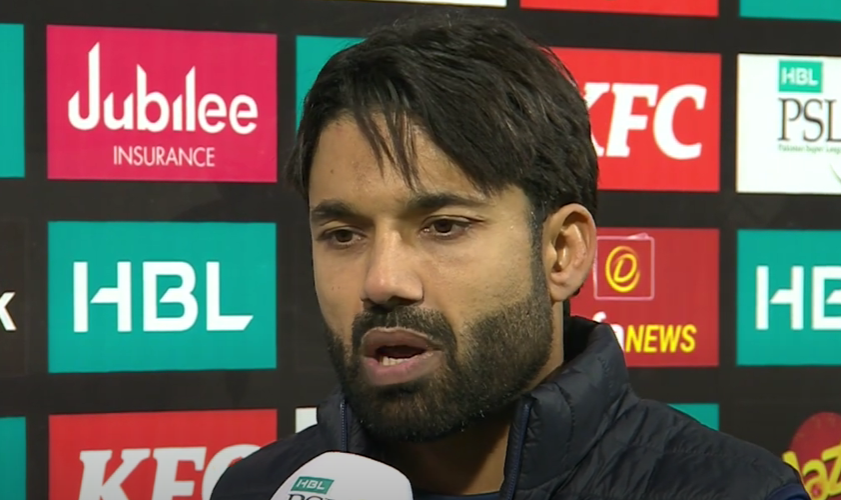
Pakistan’s wicketkeeper-batter and white-ball vice-captain Mohammad Rizwan recently opened up in a candid interaction with the media, addressing growing chatter about his English-speaking skills. The Multan Sultans captain during the Pakistan Super League 2025 spoke from the heart, expressing a deep personal regret — not having completed his formal education. Despite that, he made it clear that he does not feel ashamed or inadequate as a cricketer or a leader because of it.
Rizwan, who has risen as one of Pakistan’s most dependable batters in white-ball cricket, stated that while he regrets not finishing his studies, he believes his primary role is to serve Pakistan with his cricketing skills, not his command of English. Speaking with honesty and humility, he said that if his country had asked him to be an English professor, he would have learned the language, earned a degree, and fulfilled that responsibility. But the demand from Pakistan, as he emphasized, is for his cricket — and that’s where he continues to focus.
His words struck a chord with fans and former players alike. Rizwan admitted that he has noticed the criticism online regarding his English but is not bothered by it. He stated that he is proud of who he is and of speaking from the heart, even if not always in perfect English. For Rizwan, authenticity and intention carry more weight than fluency in a foreign language.
His comments sparked an important discussion in Pakistan’s sporting circles. Language skills, especially English, have often been used as a metric to judge players, particularly in media appearances and international interactions. Rizwan’s perspective challenged that trend. He reminded everyone that cricketing excellence, leadership, and national pride do not depend on how well someone speaks English.
In the same breath, Rizwan encouraged the younger generation of cricketers to value education. He shared that he frequently advises upcoming players to complete their studies and learn languages, not just to meet media expectations, but to grow as individuals. His self-reflection and advice demonstrated both maturity and a desire to see young athletes succeed not just on the pitch but off it too.
Criticism, according to Rizwan, is part and parcel of being a public figure. He urged senior players and fans to provide constructive feedback, rather than just highlight flaws. He stressed the importance of creating an environment where young cricketers can learn and improve, rather than feel judged or ridiculed for things unrelated to their game.

